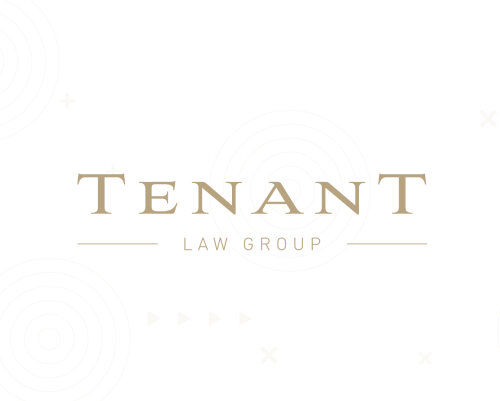Best Landlord & Tenant Lawyers in San Francisco
Share your needs with us, get contacted by law firms.
Free. Takes 2 min.
Free Guide to Hiring a Real Estate Lawyer
List of the best lawyers in San Francisco, United States
United States Landlord & Tenant Legal Questions answered by Lawyers
Browse our 2 legal questions about Landlord & Tenant in United States and read the lawyer answers, or ask your own questions for free.
- What is owner of condo units obligation as far as damage to the condo below their unit.
- The unit above my condo is managed by a Property Management company, and it was rented. During the time it was rented, there were water leaks that damaged my ceilings, and the Management Company. refuses to fix the ceiling so that it matches the rest of the ceiling. Even though... Read more →
-
Lawyer answer by Horus Legal Sulotion
Thank you for sharing the details of your situation. Based on the circumstances you described, you may have grounds to escalate the matter legally. You can file a case to request the appointment of a government engineer from Dubai Municipality...
Read full answer - How to protect property from squatters law
- Deed in my mom's name. She died 18 years ago. Son is named as administrator but not as owner. We live in USA so let Non relative live there for 45-50 year but had no formal contract. Let him live there free as long as he paid utilities and taxes.... Read more →
-
Lawyer answer by M BILAL ADVOCATES, CORPORATE & TAX CONSULTANTS
After completing probate to establish yourself as the legal heir, you can transfer the property title to your name and then grant them permission to reside there through a formal agreement. It is worthy to note that you can do...
Read full answer
About Landlord & Tenant Law in San Francisco, United States
San Francisco has a unique set of laws surrounding the relationship between landlords and tenants. The city is a pioneer of tenants' rights and has put in place strict regulations pertaining to rent control, eviction procedures, and habitability standards. Landlords must strictly comply with these laws- any deviation from them can have severe legal repercussions. Navigating these laws can be complex, and both parties often require legal assistance to ensure their rights are protected.
Why You May Need a Lawyer
You may need a lawyer when facing eviction, if your rental unit is unfit for living, if you feel your security deposit is unfairly withheld or if you need to understand the nuances of your lease agreement. A lawyer can also support landlords in enforcing evictions legally, ensuring complaint with all local laws, and establishing fair lease agreements.
Local Laws Overview
San Francisco's local laws provide several protections for tenants. The city has a strong rent control measure that limits the amount landlords can hike rent prices each year for units built before June 13, 1979. The law also mandates specific lawful reasons for evicting a tenant, including failure to pay rent, breaching rental terms, or causing substantial damage to the property. Additionally, it requires landlords to maintain safe, habitable living conditions, offering tenants options for repairing and deducting expenses if the landlord fails to maintain these standards.
Frequently Asked Questions
Do San Francisco tenants have the right to withhold rent if repairs are not made?
Yes, when a landlord fails to make necessary repairs, tenants can make the repairs themselves and deduct the cost from the rent, up to certain limits. However, the issue must materially affect the tenant's health and safety and the tenant must notify the landlord first before taking this action.
Can a landlord enter a rented unit in San Francisco without notifying the tenant?
No, landlords are required to provide a 24-hour written notice before entering a rented property, unless in cases of emergency.
What are the legal reasons for evicting a tenant in San Francisco?
Landlords must have a 'just cause' to evict a tenant such as non-payment of rent, breaking lease terms, causing substantial damage to property, or using the unit for illegal purposes.
Are landlords in San Francisco required to pay interest on security deposits?
Yes, landlords are required to pay a small amount of interest on security deposits held for more than one year.
Is there a rent increase limit in San Francisco?
Yes, for older units covered under San Francisco's Rent Ordinance landlords can increase rent only by a set percentage each year, usually in alignment with inflation.
Additional Resources
The San Francisco Tenants Union offers help with local tenant issues and the San Francisco Rent Board provides information about rent control in the city. The San Francisco Bar Association provides legal assistance and advice. For landlords, the San Francisco Apartment Association provides resources and guidance on landlord rights and responsibilities.
Next Steps
If you need legal assistance, consider contacting a lawyer specializing in Landlord & Tenant Law in San Francisco. Document any breaches, keep a record of all your communications, and collect evidence where possible. Writing down your concerns and questions before consulting with a lawyer can help ensure you don't overlook anything important.
Lawzana helps you find the best lawyers and law firms in San Francisco through a curated and pre-screened list of qualified legal professionals. Our platform offers rankings and detailed profiles of attorneys and law firms, allowing you to compare based on practice areas, including Landlord & Tenant, experience, and client feedback.
Each profile includes a description of the firm's areas of practice, client reviews, team members and partners, year of establishment, spoken languages, office locations, contact information, social media presence, and any published articles or resources. Most firms on our platform speak English and are experienced in both local and international legal matters.
Get a quote from top-rated law firms in San Francisco, United States — quickly, securely, and without unnecessary hassle.
Disclaimer:
The information provided on this page is for general informational purposes only and does not constitute legal advice. While we strive to ensure the accuracy and relevance of the content, legal information may change over time, and interpretations of the law can vary. You should always consult with a qualified legal professional for advice specific to your situation.
We disclaim all liability for actions taken or not taken based on the content of this page. If you believe any information is incorrect or outdated, please contact us, and we will review and update it where appropriate.











